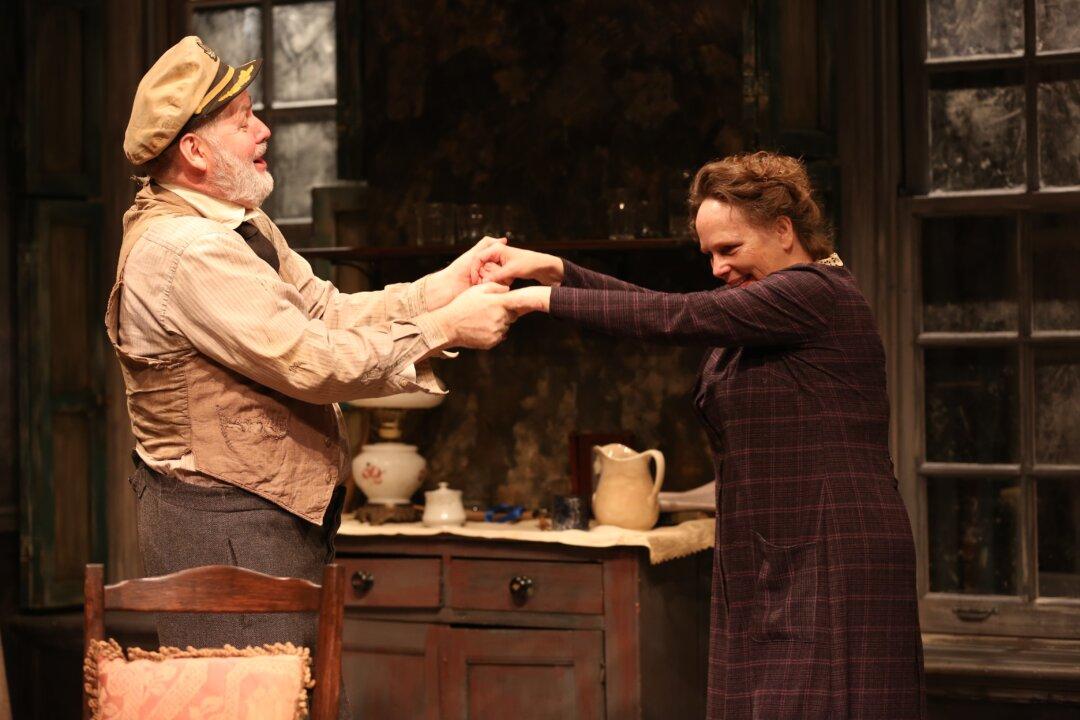NEW YORK—“Juno and the Paycock,” the second play in the Irish Rep’s season of three major Sean O'Casey works, is as powerful and moving as the recent presentation of “Shadow of a Gunman.”
Ne‘er-do-well “Captain” Jack Boyle, the Paycock, or peacock of the title (beautifully delineated by the Rep’s producing director Ciaran O’Reilly), mostly absents himself from supporting his family by claiming weak legs. They become even weaker when faced with the possibility of a job.





